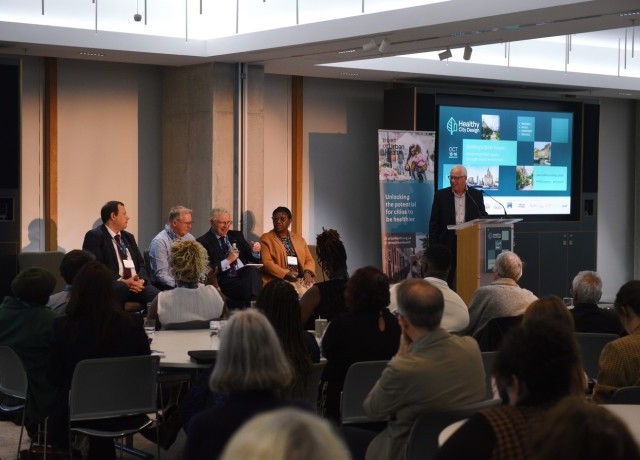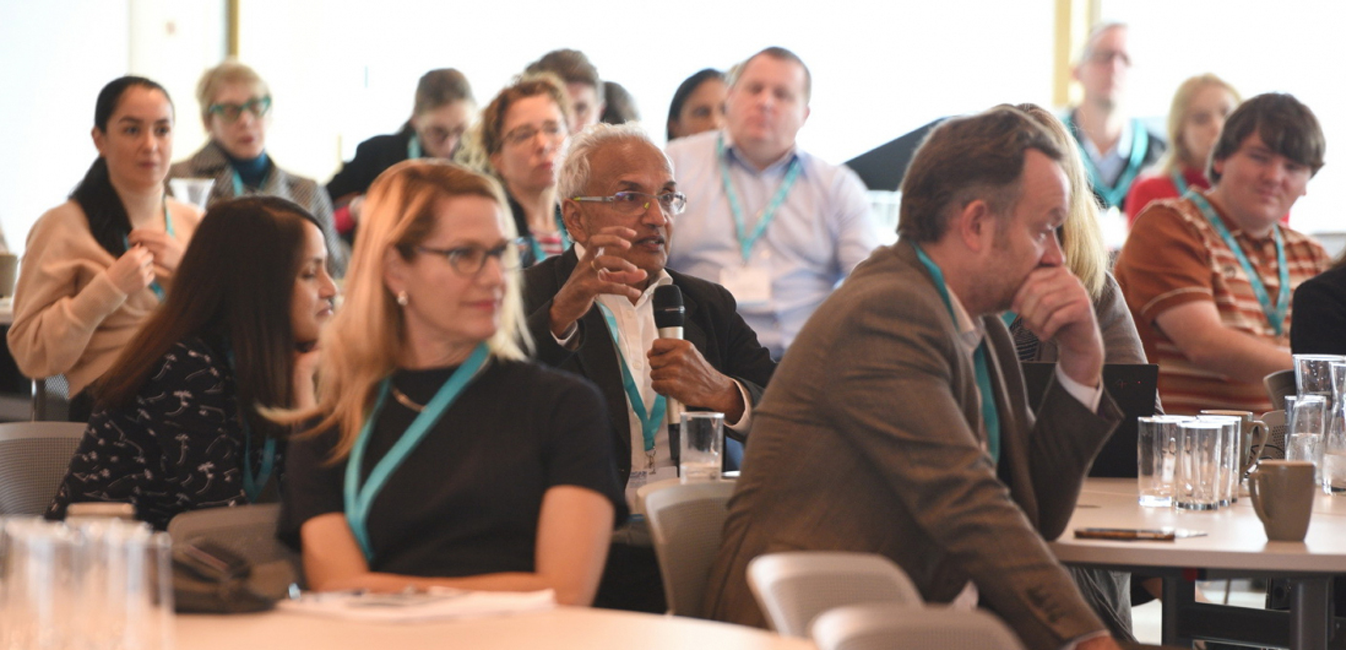
Programme
Transitions to health
Community impact through planning, policy and investment
As policymakers, practitioners and investors explore fresh ways to create healthier cities that promote inclusive economic growth and social development, there are reasons to be optimistic in 2025.
Around the world, new agendas are emerging with a renewed focus on the wider determinants of health that are embedded in our urban plans, communities, major infrastructure and the built environment. This perspective is vital to embracing a whole-system approach to urban health and health inequalities.
In the UK, the new Government has announced a ten-year plan to “fix the NHS”, centred on three important transitions: moving health services from hospital to the community; shifting systems from analogue to digital; and refocusing from treating sickness to health prevention.
All three of these transitions play directly into the wider
healthy city agenda, which advocates for compact neighbourhoods with care services closer to home, smart city integration, and the design of the urban realm as an enabler of healthier lives and choices.
A report by the NHS Confederation, ‘The State of Integration at Place’ (2024), further underscores the importance of place in “tackling inequalities, delivering more proactive, preventative care, delivering a ‘community first’ health service, and contributing to social and economic development.”
The UK’s Chief Medical Officer’s annual report on health in cities for 2024 also identifies physical activity through walking and cycling, access to healthy food and the outdoor leisure environment as key determinants of urban health. As Prof Chris Whitty observes: “The health of our cities is very important for the health of the nation.”
Central to the challenge of creating healthier cities for all is finding solutions for a housing crisis globally as well as in the UK, marked by a severe shortage of affordable and adequate homes, as rising costs outpace incomes, leading to homelessness and substandard living conditions. Planning reforms, local government reorganisation and devolution offer hope in the UK, so long as health, community building, and sustainable development are not swept to one side in the ‘rush to build’.
Investing in health to drive growth
As countries strive for growth, placing health at the front and centre of social and economic policy and investment is increasingly at the heart of national and municipal government strategies, in recognition that rising economic inactivity, lower productivity, and less innovation and creativity is being driven by declining population health and widening health inequalities.
Clearly there is now growing momentum behind driving the transitions towards a healthier city that are community- based, digital and preventative. The new mood in the UK is mirrored internationally. How can these transitions might be achieved in cities around the world through investment, research, development, planning, design and delivery; and what can those cities learn from each other?
There is great significance in Salford as the destination for this year’s congress, as a place that can share many recent stories about urban regeneration and redevelopment. The congress venue at the Lowry itself is a potent symbol: a derelict dockland site transformed into a vibrant art centre that has contributed to the wellbeing of the community for 25 years.
Salford sits within the framework of Greater Manchester, which, as a recent King’s Fund report points out, has been a ‘poster child’ for devolution in England. The journey Greater Manchester has been on towards more local, community- based control over health has significant lessons for impact investment, development and participatory design.
Empowering mayors to promote health
As cities in the UK and around the world invest more powers in city and regional mayors, their role in addressing the wider determinants of health and reducing health inequalities to help attract investment and underpin economic growth prosperity locally, can give control back to local communities.
We invite proposals for papers, posters and workshops in the spheres of practice, research, policy and investment that speak to key transitions in the evolution of healthy cities.

Call for Papers
The Healthy City Design International Congress 2025 is organised by SALUS Global Knowledge Exchange in partnership with the Helen Hamlyn Centre for Design, Royal College of Art, which is an international research hub for inclusive design. We are delighted to invite you to contribute to a new dialogue on the future fairness of our cities and communities by submitting abstract submissions by the deadline of 22 May, submit here.
Themes
Mobilising capital for place-based investment that builds diverse, inclusive and prosperous communities
Empowering communities to design and lead changes to systems and environments driving health inequalities
Creating healthier and inclusive living spaces that enhance residents’ quality of life and contribute to thriving communities
Urban strategies that promote compact and vibrant cities, prioritise wellbeing, and foster community resilience
Innovative, inclusive and accessible transportation strategies that promote healthy active travel and sustainable mobility
Embedding planetary health and circular economy principles into urban governance, policy, design and implementation
Digital transformation, innovation district and new workplace models in promoting economic and social development
Provisional timetable
Chaired and directed by






